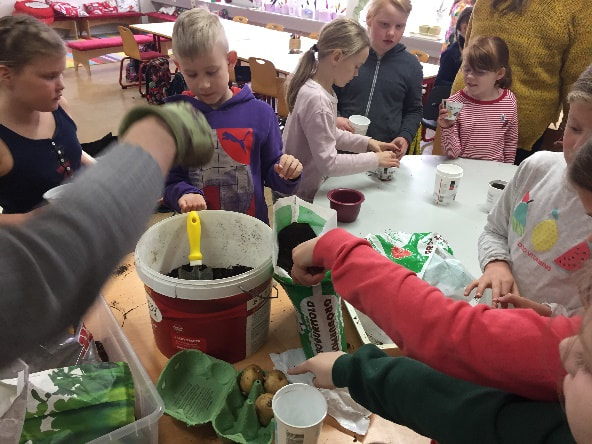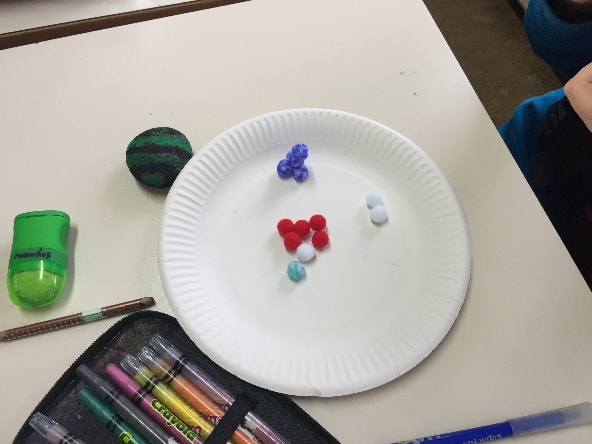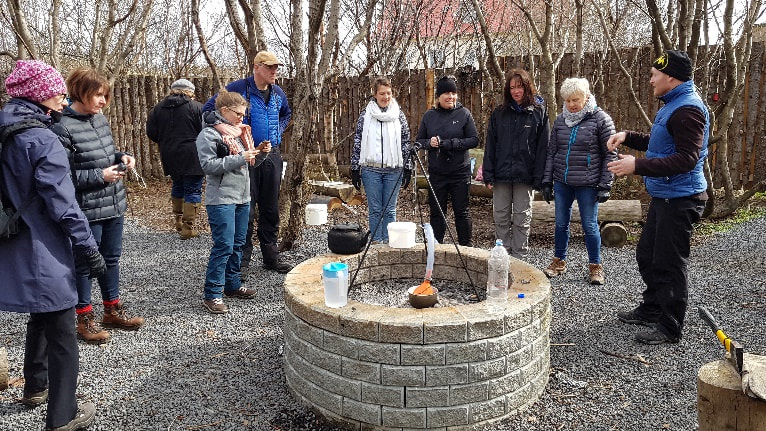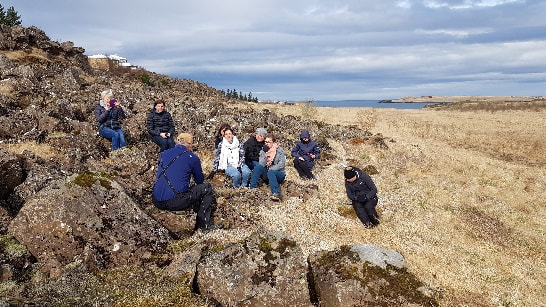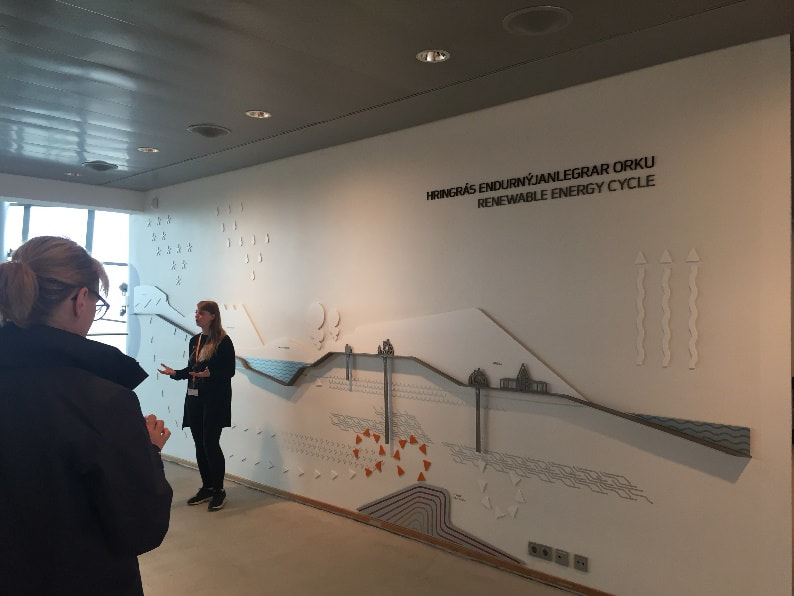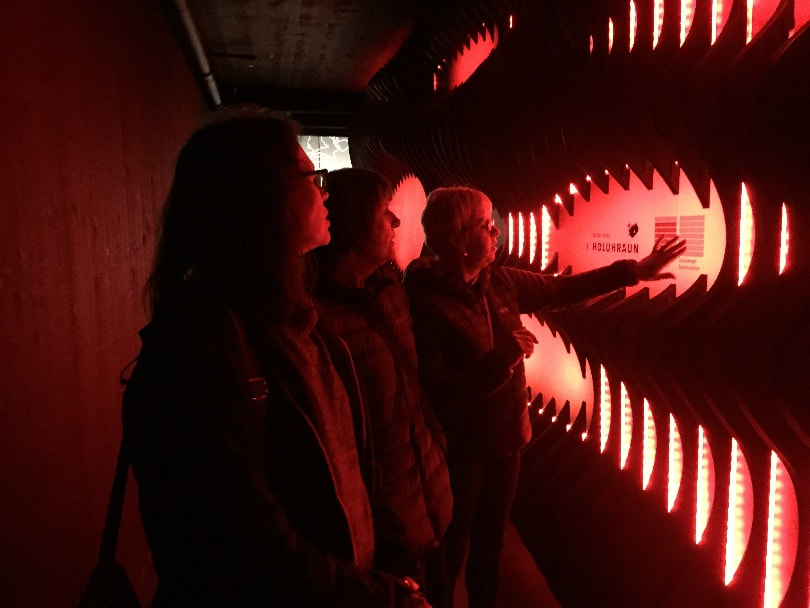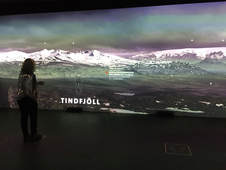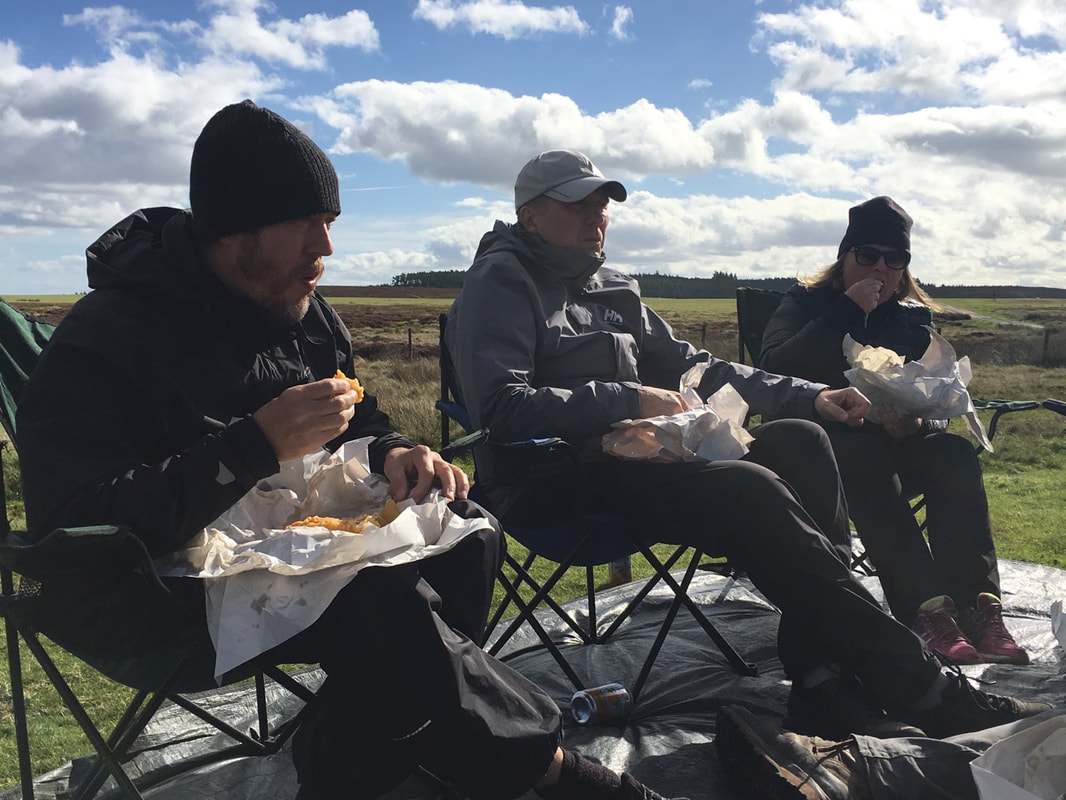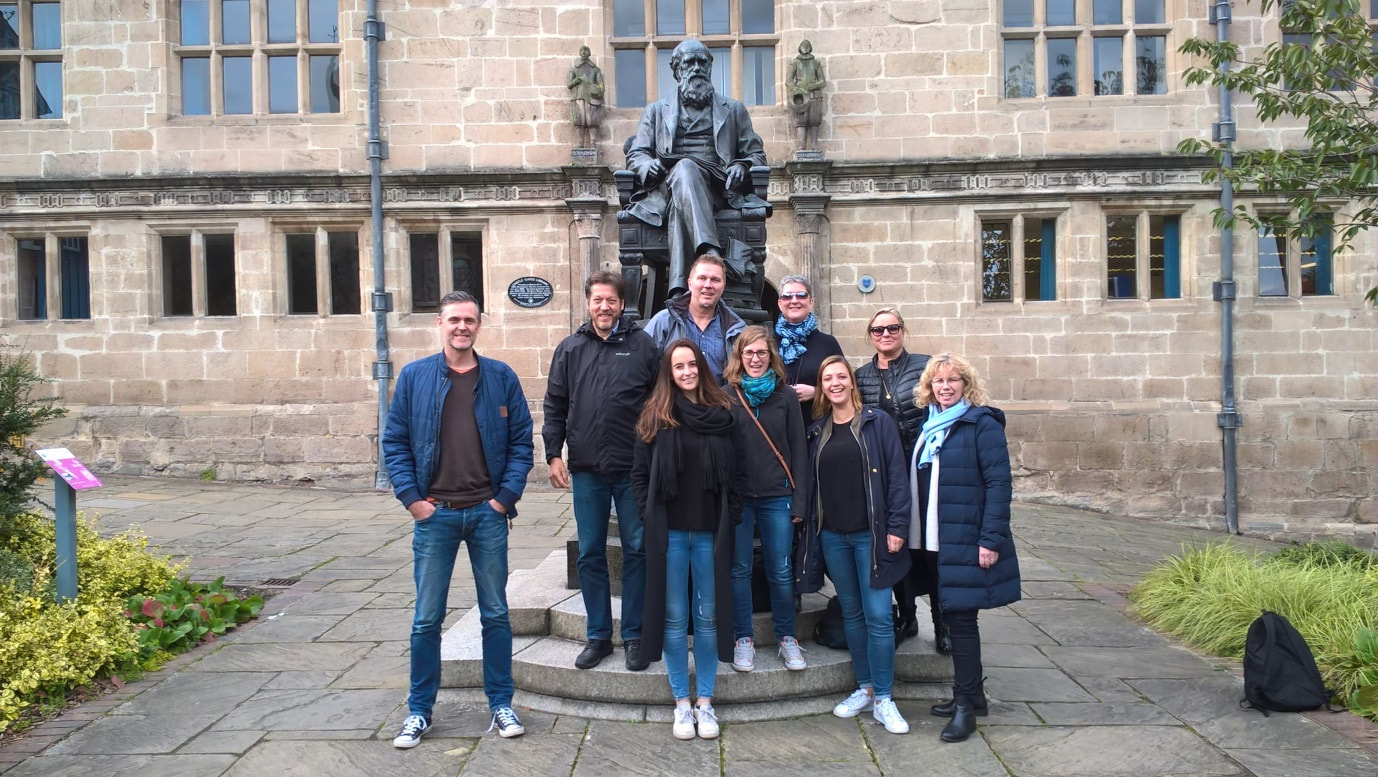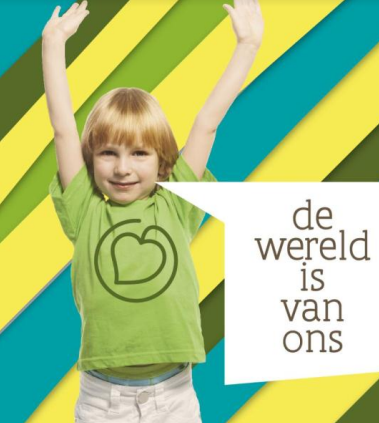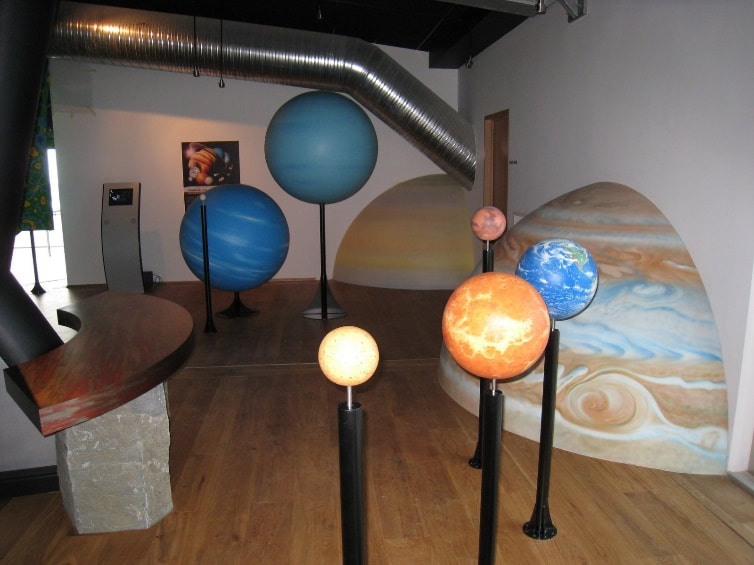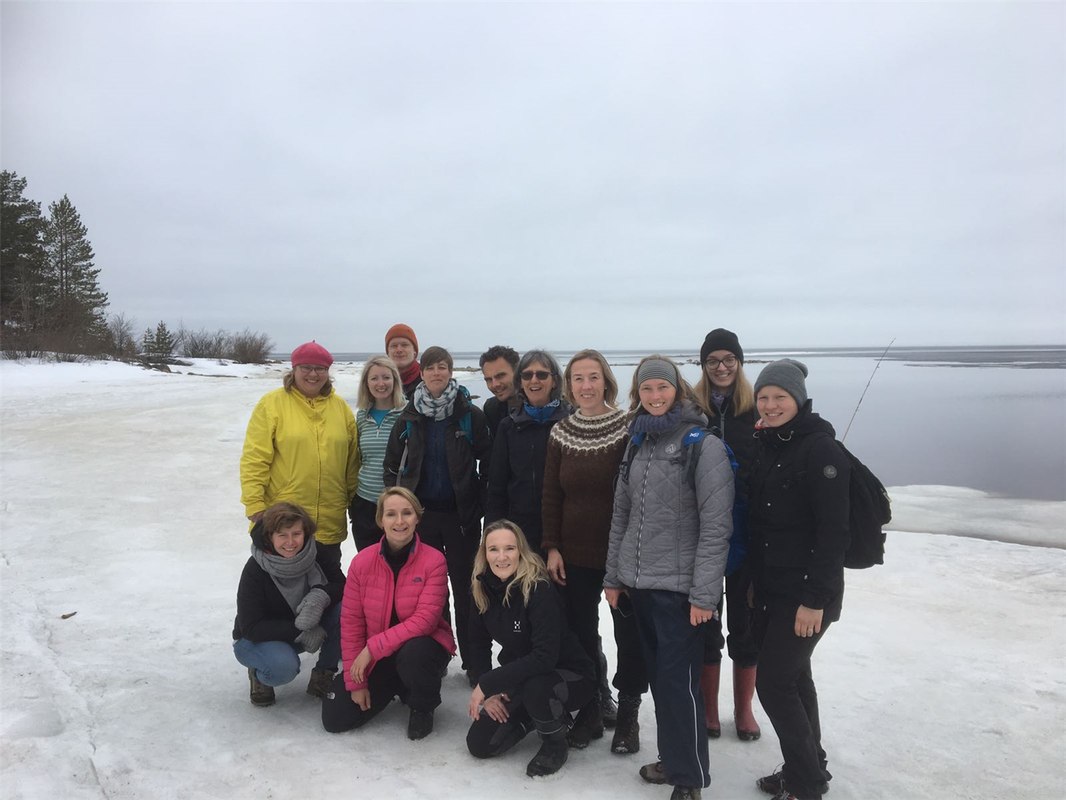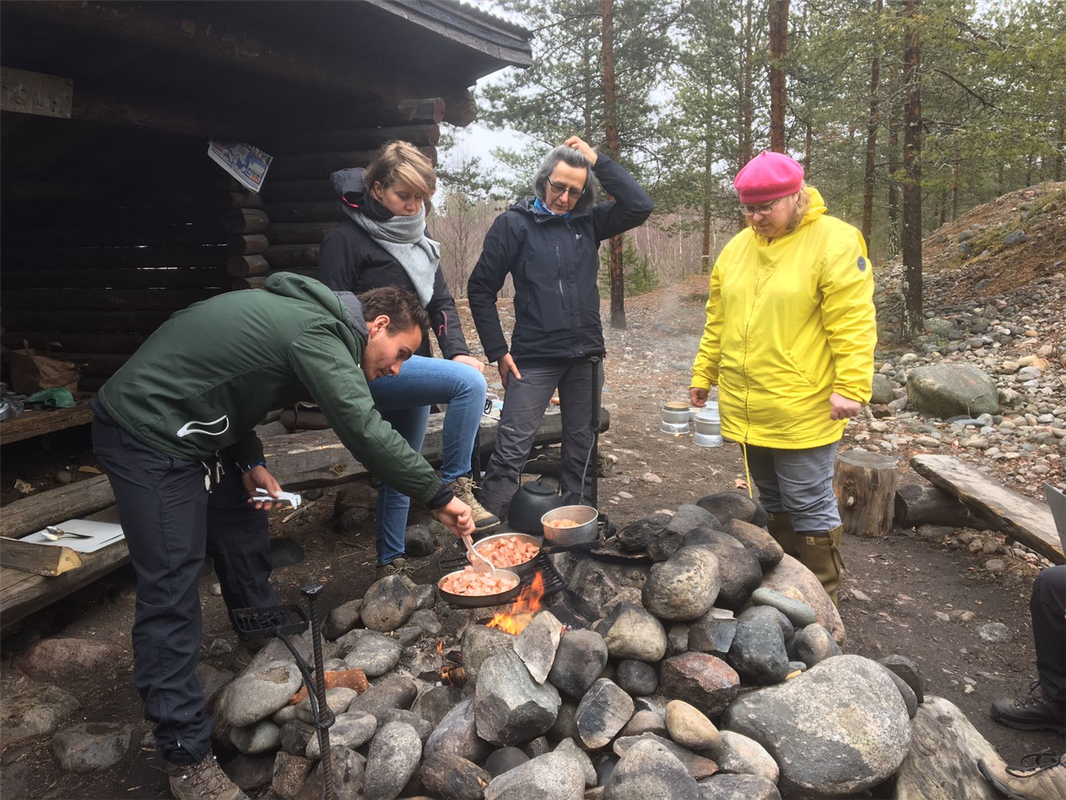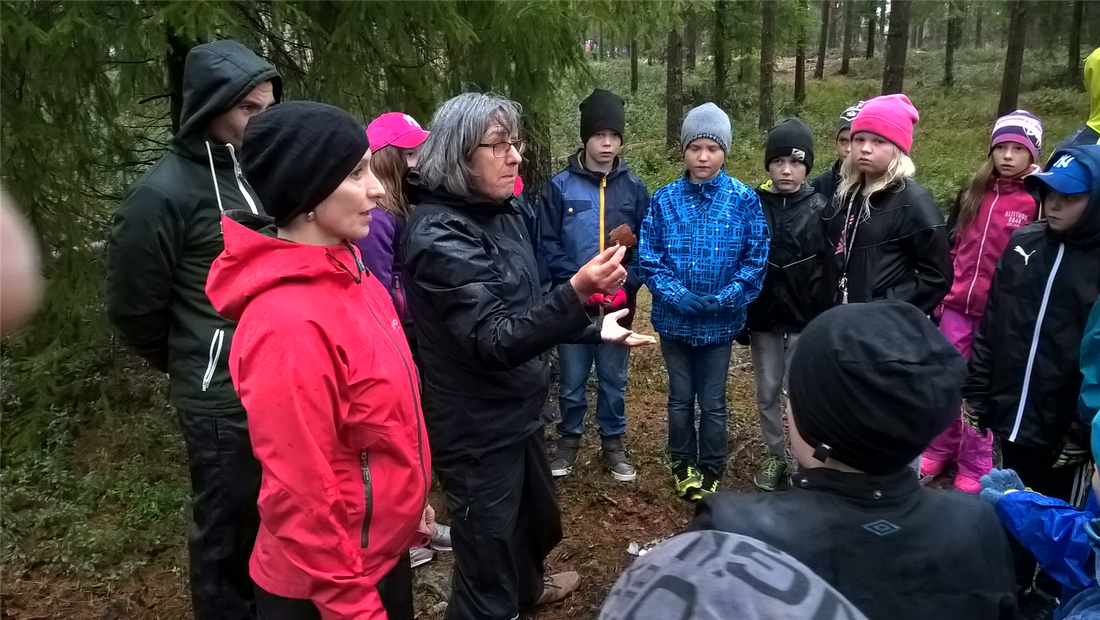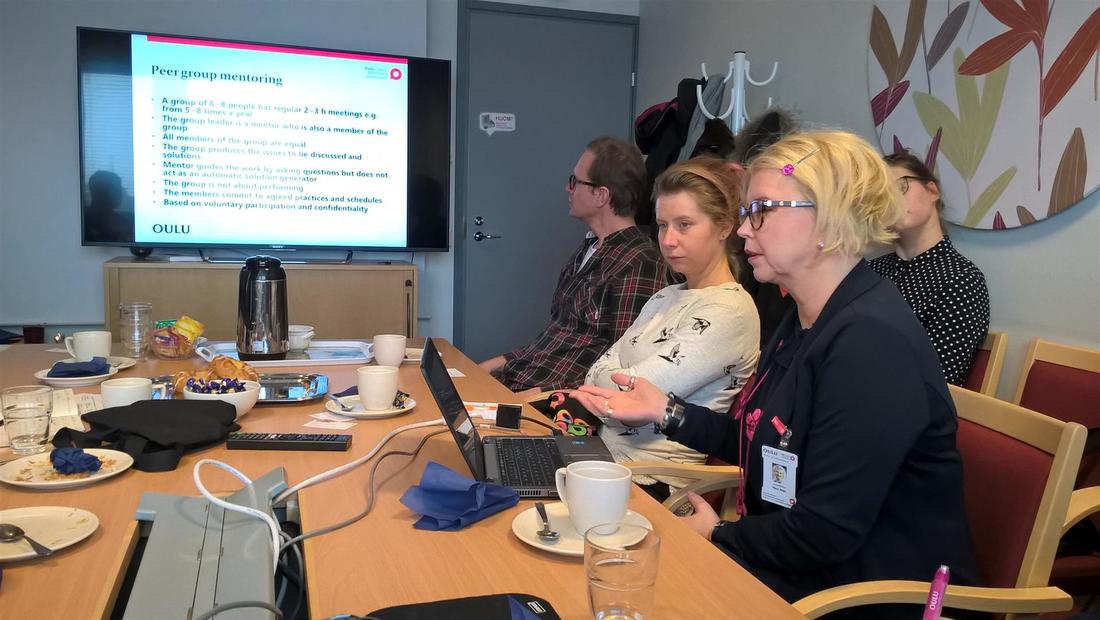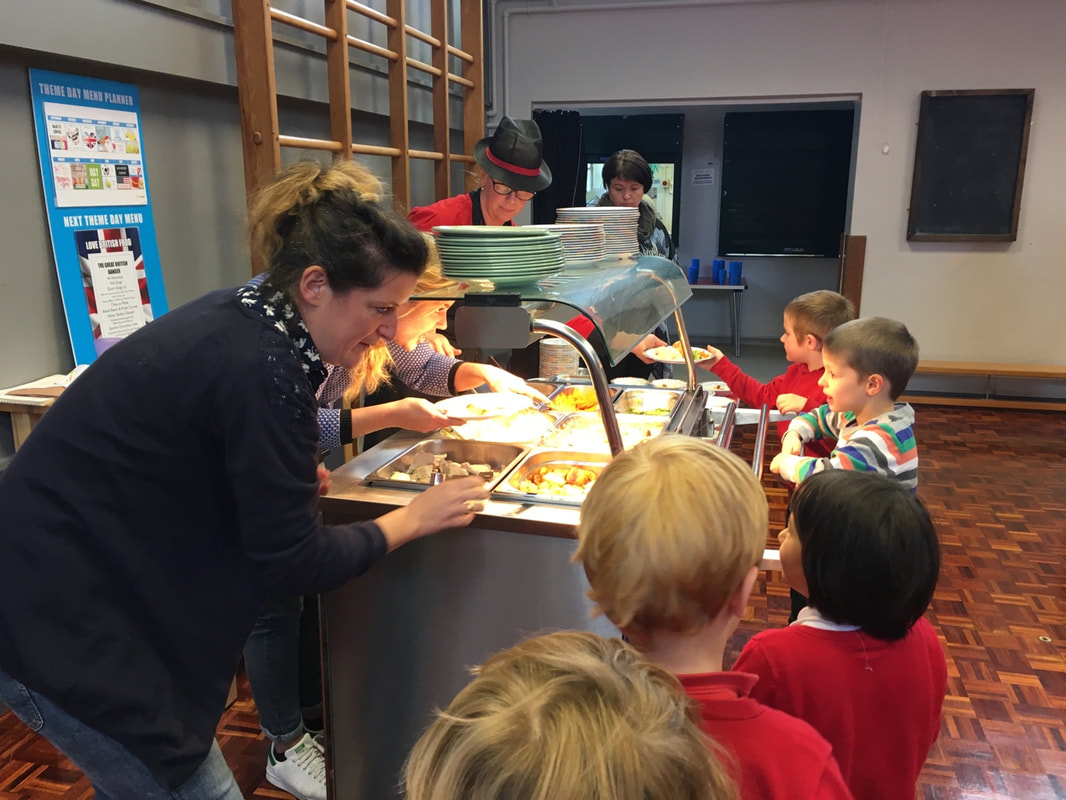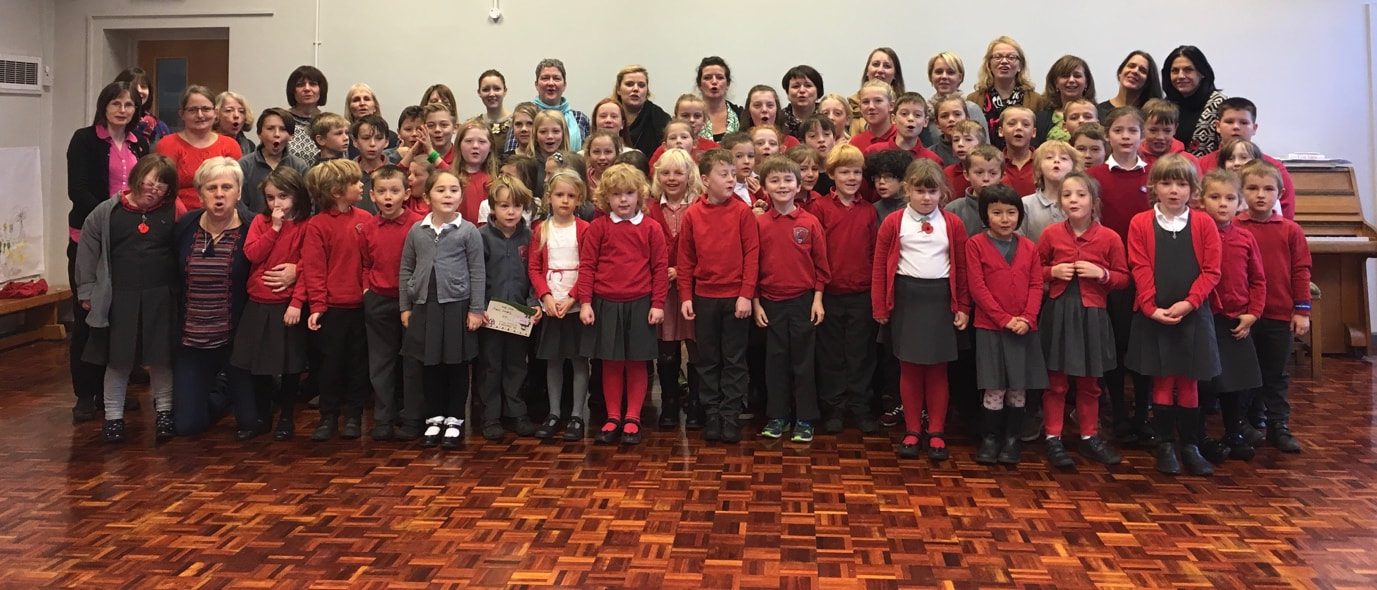Teacher Training in Reykjavík 26.–29.4.2018
|
The theme of the week was „Ecological daily life“. Seven guests and three teachers from Ártúnsskóli participated in the program which included job shadowing, visits and educational sightseeing trips.
All teachers visited „Carousel lessons“ where mixed-age pupils groups worked together in a creative way, studying nature sciences in- and outside of the school building. Job shadowing in different classes was a part of the program, the guests followed the pupils through an “Energy path” in the local woodland and visited an old power plant at Elliðaár. The pupils enjoyed telling and showing the guests their work. One morning was spent in Gufunesbær, outdoor center that is Ártúnsskóli´s partner in the EcoRoad project. Hellisheiðarvirkjun was visited, the tomato farm and greenhouses at Friðheimar and the geology exhibition at Lava Centre. |
Project meeting in Clun 4.–6.10..2017
|
During our project work sessions we discussed the developing work done in each school on the last theme “Teaching and Learning“ and made action plans based on ZEF surveys for our final theme: “Student Centred Focus”.
These meetings are very useful as they identify the strengths and weaknesses of all of our schools in specific areas and provide us with time to reflect in our own school groups and together as partner schools on ways to move forward and improve our practice. It is also very useful to discuss feedback from our staff’s participation in the Teacher Training weeks. Clearly these weeks are having a great impact on individual staff and their work with their colleagues and their pupils back in their schools. At this meeting we also spent time working on the booklet and dissemination. To support our work on both Teaching and Learning and our Student Centred Focus we invited a guest speaker Geoff Hannan, educationalist, writer and broadcaster who is a leading authority in gender teaching and learning to talk about ‘Improving Boy’s Performance’. A visit to our Forest School site to take part in a lesson and opportunities to explore our local environment with an outdoor picnic of fish and chips were enjoyed by all. Our guests had dinner at a member of staffs house, had a guided tour around our local industry-a brewery, and attended a local folklore performance by a local story teller. We were delighted to celebrate with our project leader the award of his PHd. – Dr. Seppo Saloranta. |
Teacher Training in Antwerp 18.9.2017
|
Antwerp schools are an inspiration for teachers from Finland, Iceland
and United Kingdom MOS en primary school De Wereldreiziger from Antwerp joined in 2016 in an Erasmus+ project. The purpose of this project is to learn how to make sustainable choices for the planet, together with pupils and teachers. This week a delegation of teachers from Finland, Iceland and United Kingdom came to Antwerp for the teacher training in Belgium. This week 9 teachers from Finland, Iceland, United Kingdom and Belgium participate in the teacher training in Belgium ‘Learn to live and living to learn’. The training is a part of the Erasmus+ project ‘ECOroad’ in which MOS Antwerp and primary school De Wereldreiziger, together with foreign school en organizations, investigate in which way they can integrate education for sustainable development (ESD) in schools. The teacher training this week shows that schools from the province of Antwerp, together with students from diverse origins, are learning how to make sustainable choices for the planet. De Wereldreiziger is a multicultural school where pupils from various nationalities are living en learning together. For this project they will work on the involvement of parents and the participation between the working groups at their school. Interesting program On Tuesday the delegation of teacher and pupils from the fourth year from De Wereldreiziger are going to Rivierehof for the educational activity ‘ In the yard’. Here the pupils and teachers will experience the yard with all their senses. They will also learn more about ecological gardening. Ann Moorkens en Martine Vispoel will explain how they work with multicultural groups at Rivierenhof. The delegation will visit primary school De Bever at Deurne, later this week. MOS helped the school over the last two years with their process to make an adventurous and green playground. Purpose of this project was to create a challenging play ground that is an also place to learn outside. The added value of this project most certain is the fact that parents from diverse nationalities helped with the transformation of the playground. Not only that, most parents feel more close to the school. In secondery school Atheneum MXM at Merksem the delegation will visit the Roman garden and the science garden which are fully maintained by pupils. Thursday afternoon everybody will go to the Tampicogarden. This is a garden where families from various origins meet each other. For some people it’s the first step towards further integration. 2018, an interesting year This Erasmus+ project ends in 2018. There is another teacher training in Iceland and a project meeting in United Kingdom. In Finland, on the last meeting, everybody will work on an Ecoroadbook in which the results of the project will be written down. In this way MOS Antwerp and primary school De Wereldreiziger hope to inspire schools all over the world to implement education for sustainable development. |
Project meeting in Reykjavík 22.–24.5.2017
|
Theme: Teaching and learning
Each leading group got the results of a survey that the staff at that school had taken, chose three topics to work on until next meeting and made action plans for that work. All the questions had been about teaching and learning methods and environment, something that constantly can be made better and more diverse. The group visited the exhibition “Power Plant Earth” where through interactive touchscreens, models and hands-on tests guests can learn about the Big bang theory, our solar system, energy sources and the utilization of geothermal energy in Iceland. Through a glass wall it is also possible to have a look at the turbines of the Reykjanes geothermal power plant. The group also participated in a orientation lesson in the neighbourhood of Ártúnsskóli. Interesting lectures were held by people from the Icelandic Environment Association. Caitlin Wilson talked about "Development of ESD pedagogy and transformative schools How can schools support transformative learning for sustainability? " and Margrét Hugadóttir named her lecture „Say yes! Creative school and Student-centred learning. Inquiry based learning in a creative setting, the role of the teacher as a facilitator and the chances and challenges of Student-centred learning “. |
Teacher Training in Oulu 15.–19.5.2017
|
Theme: Outdoor education
The aim of the teacher training was to provide the participants with both theoretical and practical examples of nature education. Through theoretical presentations outdoor education was linked to ESD (Education for Sustainable Development). The participants had possibility for job shadowing and following the school’s daily life. During the training week the participants visited different learning environments used for outdoor education in Hönttämäki School (e.g. Timosenkoski Nature School, Alakööki developing center for early childhood education, Liminka bay visitors’ center and Isoniemi hiking area). The program consisted also of workshops on how to teach outside (organized by MOS) and how to connect ICT and ESD. On Wednesday the participants took part in Sykähdyttävä adventure organized by sixth graders. On Friday the participants organized a nature event for pupils of Hönttämäki School. Both of these events were important and exciting international experiences for pupils. They had a chance to meet participants face to face and it gave them possibilities to hear and speak a foreign language. |
Project meeting in Oulu 22.–24.2.2017
|
Theme: Professional orientation
1. Project work During our project work sessions we discussed the developing work done in each school on the first theme “Organizational structure”. The work in each school has started, but developing processes and actualizing plans takes time. Each school had taken the initial ZEF-survey for pupils, parents and teachers on their opinions of sustainability and education for sustainable development. By comparing the results we got a good discussion of the situation in different schools. We also got a report and evaluation of the first teacher training week in Clun, England. Both the training organizers and the participants were satisfied. A key task for this project meeting was to evaluate ZEF- survey C (“Professional orientation”) and identify the areas for development in each school. 2. Lectures and visits Development manager Päivi Mäki gave a presentation of “Continuous Professional Development in Education and Culture Services −From Mass lectures to Mentoring”. She emphasized the importance of trainings to take care of your personal teaching skills needed in modern school. Climate specialist Helmi Riihimäki told us about ”Climate Change Mitigation in Oulu” and in Timosenkoski Nature School we heard Anna Vladimirovas’ presentation “Relationship to forest”. Both these presentations confirmed our perceptions about the importance of ESD and nature education. The program also included examples of different learning environments. Talvikangas School is the newest school in Oulu and there we were introduced to “open learning environment”. We were impressed by the building, teaching equipment and materials, but the open spaces aroused a lot of discussion between us. A totally different learning environment was the forest used in Timosenkoski Nature School. |
Teacher Training in Clun 7.–11.11.2016
|
Theme: Student Well-being
Probably the most profound and inspirational realisation of this project is about the nature of teachers. Wherever teachers come from- whatever nationality- we all share the same desires and motivations; to do the very best for the children in our care. Our partner teachers arrived in an unusually warm November. The focus of the UK teacher Training Week was Student Well-being and throughout the week the teachers were given opportunities to find out how we ensure our student’s well-being at St. George’s.
We hosted a variety of seminars on Student Voice, Safeguarding and Inclusion to support the above themes and visiting teachers had plenty of opportunities to observe policy into practice in the classrooms. The teachers were also taken to our Forest School site to join the children in their lesson there. This work stimulated much discussion about similar work done in our partner schools and strategies that could be used to introduce new initiatives in our own schools. Notably our partner teachers discussed our use of whole school assemblies as a vehicle to deliver and re-inforce the school’s vision to parents, staff governors and our pupils. Our guests made engaging presentations to the children about their countries and their schools. The children were so interested to learn and to hear different languages spoken-learning a few words too and consequently have establishes pen-pals with children from our partner schools. There is always great excitement when the letters arrive! And, of course, we persuaded our Icelandic guests to teach us all the Icelandic ‘Huh!” One other memorable moment, which demonstrated our common value as teachers was when, during the week, we had a medical emergency with one of our children who suffers from severe epilepsy. As the ambulance and paramedics arrived , our visiting teachers, without being asked and without question, took over the serving of lunches to the remaining children to enable our staff to manage the emergency situation effectively. |
